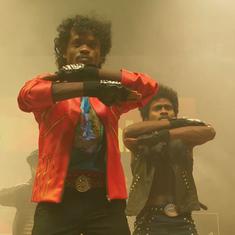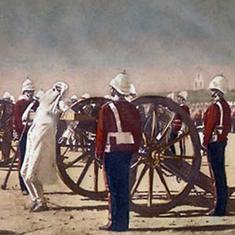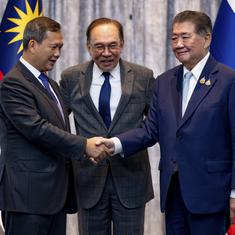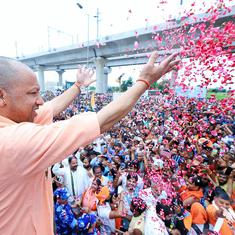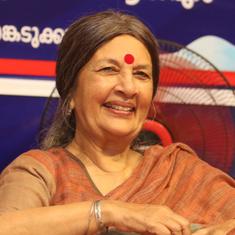SC asks Justice Varma why he appeared before inquiry panel if it was unconstitutional
The bench also questioned why the judge waited for the committee to submit its report before moving the court.

The Supreme Court on Monday asked Allahabad High Court’s Justice Yashwant Varma why he appeared before the in-house inquiry committee probing the unaccounted cash row if it was unconstitutional, reported Bar and Bench.
“Judges have abstained from attending these proceedings in the past,” said a bench of Justices Dipankar Datta and AG Masih.
The bench also questioned why Varma waited for the inquiry committee to submit its report before moving the court, according to Live Law.
The court was hearing Varma’s plea against the committee’s report that indicted him in the unaccounted cash row. The Allahabad High Court judge had also challenged the recommendation made by Sanjiv Khanna – the chief justice of India when the report was submitted – to the president and the prime minister to initiate impeachment proceedings against him.
Unaccounted cash was allegedly recovered at Varma’s official residence in Delhi when emergency services responded to a fire there on March 14. He was a judge at the Delhi High Court at that time. The judge said he was in Bhopal when the cash was discovered and claimed that it did not belong to him or his family.
Amid the row, he was transferred to the Allahabad High Court.
On Monday, Varma told the Supreme Court that he had appeared before the three-member inquiry committee because he thought it would “find out who the cash belongs to”, reported Live Law.
Alleging that the committee did not follow procedure, Varma’s counsel Kapil Sibal said that judges can only be removed from their post as per Article 124 of the Constitution and not through public debates based on the report.
Article 124 deals with the composition of the Supreme Court, the appointment and removal of judges, and their qualifications.
“Tape is released on March 22, the whole country talks about it, man already stands convicted,” said Sibal. “All that has happened is completely contrary to the Constitution – release of tapes, putting it on website, public fury, public discussion, media interaction, accusation against judge, findings by public discussing conduct of judge is all prohibited.”
He was referring to a report released by the Supreme Court on March 22, which included a video and three photographs, showing bundles of notes that were allegedly recovered from the judge’s home. The court had also set up the three-member committee to look into the allegations against Varma.
The redacted report showed that Delhi High Court Chief Justice Devendra Kumar Upadhyaya had written to Varma on March 21, asking him to “account for the presence of money/cash” in a room located in his bungalow.
Sibal stated on Monday that by releasing the report, the process to remove Varma from his post had been politicised, according to Live Law.
However, the Supreme Court said that the judge could not raise these points after having participated in the inquiry process.
The bench adjourned the hearing till Wednesday, asking Sibal to submit the in-house inquiry committee’s report.
The committee, in its report, concluded that there was “sufficient substance” in the charges against Varma. The report, dated May 3, held that the judge’s misconduct was “serious enough to call for initiation of proceedings for removal”.
However, the report did not address questions about how the fire started, how much money was found, where the cash came from or where it is now.
After Varma declined to voluntarily retire or resign, Sanjiv Khanna sent the final in-house inquiry committee report on the incident to the president and the prime minister.
Varma had challenged the committee’s report ahead of the Monsoon Session of Parliament.
On Friday, Parliamentary Affairs Minister Kiren Rijiju said that the Lok Sabha will take up a bipartisan motion to remove Varma.
The minister added that the decision to impeach the High Court judge was unanimous and that 152 MPs from the ruling coalition and the Opposition parties had signed the motion.
To impeach a judge in Parliament, a removal motion is required to be signed by 100 Lok Sabha MPs or 50 Rajya Sabha MPs. If the motion is admitted, a three-member judicial committee investigates the matter. The Parliament votes on the impeachment if the committee finds misconduct. If the motion gets two-thirds of the votes, the president is advised to remove the judge.
Also read: Five crucial questions the report indicting Justice Varma does not answer


